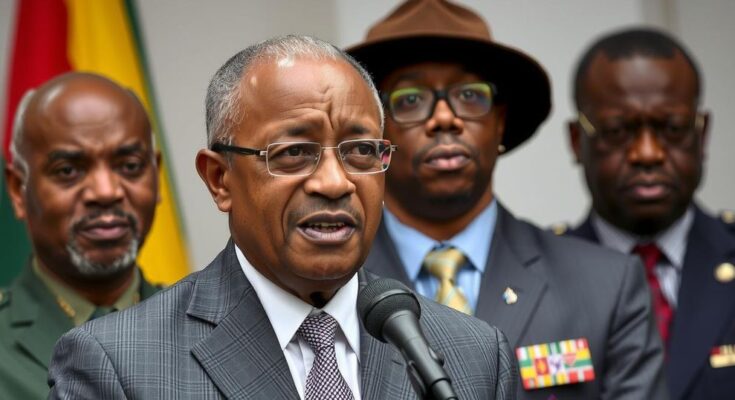Daniel Chapo is set to be inaugurated as Mozambique’s president amid significant protests questioning his electoral legitimacy. Accusations of voting fraud have intensified unrest, leading to calls for national strikes. Chapo faces the immense task of gaining public trust while addressing economic and corruption issues, and his success will depend on his ability to engage with opposition leaders and the civic community.
Mozambique is poised to witness the inauguration of its president-elect, Daniel Chapo, amidst ongoing upheaval and tensions marking the disputed elections held over three months ago. With 65% of the votes, Chapo’s election has been marred by allegations of fraud and has triggered protests that have escalated into violent confrontations, claiming lives and resulting in significant unrest. Key opposition figures, including Venâncio Mondlane, have called for protests against Chapo’s presidency on the day of his swearing-in ceremony, questioning his legitimacy as a leader.
Chapo faces a dual challenge: not only must he win the confidence of a skeptical public and navigate economic challenges, but he must also combat entrenched corruption amid allegations of cartel influence within the country. Observers recognize that while Chapo has a reputation for being humble and open to dialogue, he must address the grievances of the populace to secure lasting support. Notably, Chapo is the first president of Mozambique not involved in the independence struggle, which sets him apart from his predecessors.
In light of these challenges, Chapo must prioritize economic recovery, job creation, and electoral reform while working towards national reconciliation. Establishing dialogue with opposition leaders, particularly with Mondlane, could prove beneficial in fostering unity and addressing public discontent. As the international community watches closely, Chapo’s approach to governance in the first term will be critical in determining his long-term legacy and political viability.
The political landscape in Mozambique has been tumultuous following the recent elections, where the legitimacy of the electoral process has been widely challenged. Daniel Chapo, the newly elected president, is stepping into a climate of distrust, fueled by allegations of election fraud and widespread civil unrest. The presence of political factions like Renamo and MDM, which are boycotting his inauguration, signals deep divisions within the political framework of the nation. Furthermore, the backdrop of economic struggles and the pervasive influence of cartels complicate Chapo’s mandate as he assumes leadership. Historical context shows that previous presidents have come from a revolutionary background, contrasting with Chapo’s established career as a politician and civil servant.
In summary, Daniel Chapo’s inauguration as president of Mozambique occurs amid a contentious political environment filled with public skepticism and opposition. His ability to navigate these challenges and foster genuine dialogue with dissidents will greatly influence the success of his administration. Tackling economic reforms and restoring public trust are imperative; otherwise, Chapo may face significant limitations in his authority and effectiveness as the new leader of Mozambique.
Original Source: www.bbc.co.uk




